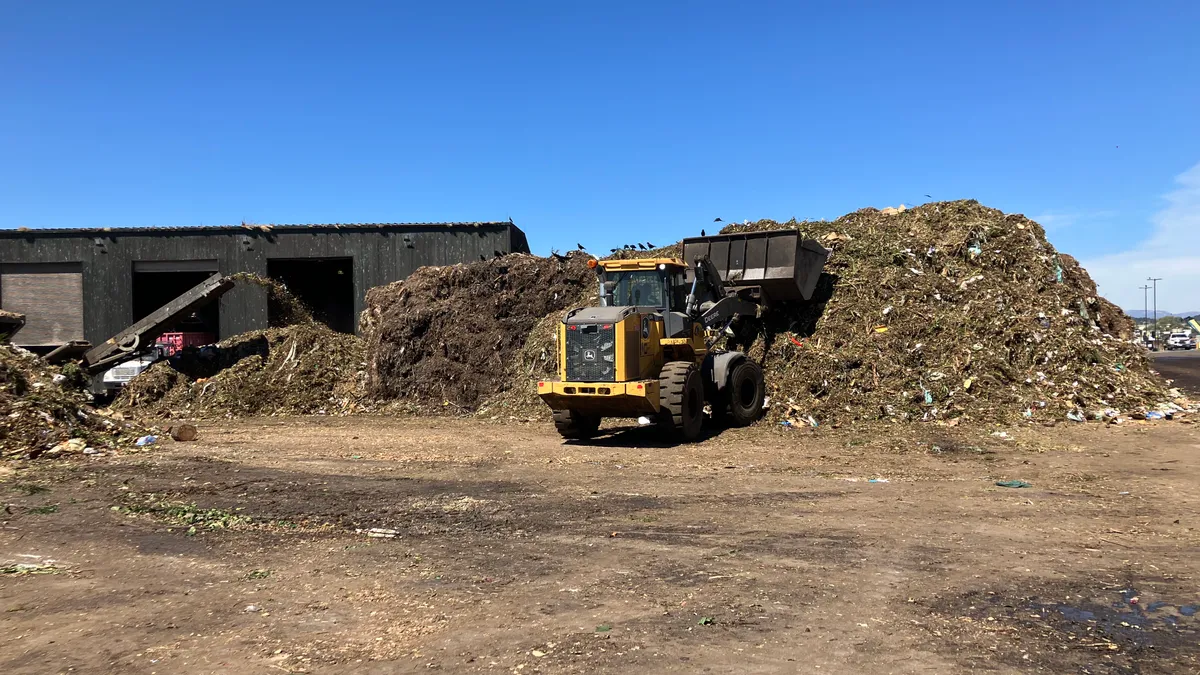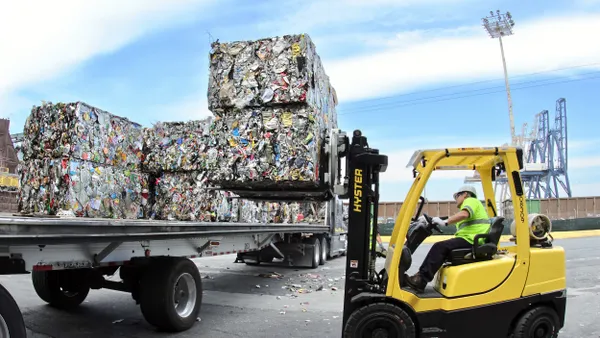Dive Brief:
- Fort Collins, CO has delayed a decision on multiple waste management regulations after some council members and haulers objected to some of changes, tied to the accelerated requirements to reach a zero waste status.
- Recommended stipulations first presented to City Council in January include recycling for multifamily units 8 months after the law takes effect; organics collection for single-family households within two years; food scrap collections from grocery stores and restaurants within three years; and commercial recycling, citywide, by 2020 with haulers picking up 25% more businesses each year leading to that deadline.
- The proposed changes, which follow a research project and conversations with local haulers, need to be tweaked to come up with a viable zero waste strategy as well as a realistic timeframe for implementation, according to Mark Glorioso, general manager of Gallegos Sanitation Inc. (GSI).
Dive Insight:
Fort Collins is aiming for 75% waste diversion by 2020 and zero waste by 2030. While the city is already ahead of most of the country with a 68.1% rate in 2014, the city has a way to go. Haulers and some of the city believe the proposed plan would put too much on service providers who are already taxed — paying $45 a ton to drop materials at the recycling center that they used to cash in on and paying a fee to the landfill. Now they will have to dig deeper in their pockets for equipment and labor, among other costs, to push the city closer to zero waste in what some say is too short a time to expect of them.
There appears to be a “disconnect” between city staff and the haulers on what is a reasonable way to go about boosting recycling, believes Councilmember Gino Campana.
"If they’re not on our team, I don’t know how we are going to get there," she said to the Coloradoan.
Upping the recycling rules on haulers would not only raise their costs, but pass expense on to customers, said Mark Glorioso who was among haulers that met with council members earlier.
Sid Doering, who works on special projects for GSI, recommended making the push for more recycling easier on haulers and customers by increasing customer education and lightening some regulations such as the incline rate, where customers pay more for larger trash bins, with the concern being that high enough rates could lead to more contaminants tossed in recycling containers.











